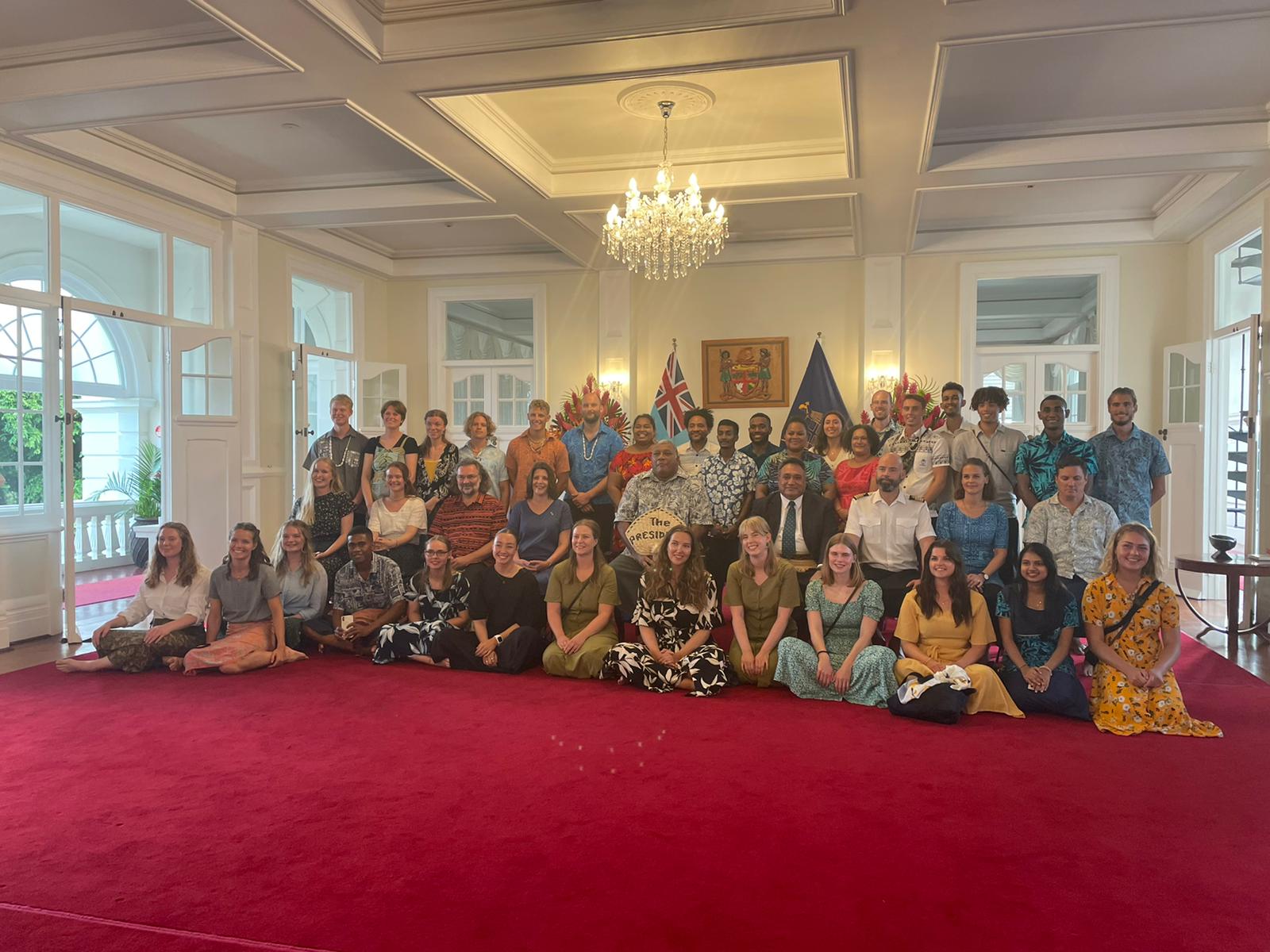Related News

Thirty students from The University of the South Pacific (USP) will be boarding Norway’s largest sailing ship Statsraad Lehmkuhl next week to be part of the One Ocean Expedition (OOE) across the Pacific Ocean.
The University of Bergen (UiB), Norway is one of the leading partners of the expedition. USP has had an agreement with UiB since 2015.
The expedition will emphasise knowledge-sharing and building partnerships to solve the challenges of the future with a particular focus on the 2030 Agenda for Sustainable Development and the teaching of SDG200, a course that focuses on SDG14 (Life below water), SDG13 (Climate action) and highlights SDG17 (Partnerships).
The Statsraad Lehmkuhl is a floating university and training vessel combined and will bring students, scientists, trainees, and professionals together on a leg to Fiji and other Pacific countries. The ship is currently docked at the Suva Port and will depart Suva on 30 June on a triangle journey to Samoa, Tonga, and back to Fiji.
The OOE team presented their traditional I Sevusevu to the President of the Republic of Fiji Islands on Sunday 26 June and the I Tatau for the students joining the 21days triangular expedition.
USP working team comprises representatives from the Research Office, International Office, School of Law and Social Sciences (SoLaSS) and the School of Agriculture, Geography, Environment, Ocean and Natural Sciences (SAGEONS) that have collaboratively planned and organised the event activities and the exchange programmes for the SDG200 course as part of the expedition.
On board the ship, USP students will get a chance to carry out research, learn and exchange knowledge with students from all over the world on the crucial role of the ocean for sustainable development from a global perspective.
USP’s Vice-Chancellor and President, Professor Pal Ahluwalia, expressed gratitude to the Lehmkuhl Foundation for allowing student scientists from the Pacific to be part of the expedition, providing them with a value-adding opportunity to be trained and give back to their communities.
“This opportunity is part of the University’s vision to empower our students, staff, and alumni to become inspirational agents of positive change leading innovative, cohesive, resilient, and sustainable communities,” he said.
“Global Engagement is also a priority area for the University and focuses on culture, engagement, and impact. Partnership with the University of Bergen enables our students to undertake research, teaching activities, student exchange, study tours and projects that support collaborative research.
“It also contributes to graduate attributes, such as intellectual curiosity, capacity for leadership and working with others, appreciation for the cultures of the Pacific islands and cross-cultural competencies,” Professor Pal added.
Professor Pal relayed his good wishes to the students as they embark on the 21-day journey.
USP student, Marca Stephens who will be part of the expedition said she was grateful for the opportunity, a once-in-a-lifetime experience.
“I’m looking forward to the course SDG200 on board Statsraad Lehmkuhl and also excited to learn from other students and discuss my research, especially how our Pacific culture and ways of life entwine with global sustainable goals,” she said.
In August 2021, the vessel set sail from Arendal, Norway, for a twenty-month-long circumnavigation of the globe.
The One Ocean Expedition is endorsed by the UN Decade of Ocean Science for Sustainable Development. The goal is to create attention and share knowledge about the crucial role of the ocean for sustainable development from a global perspective.
The 107-year-old ship has been equipped with scientific instrumentation and will collect and share data throughout the journey. Through measuring levels of carbon dioxide, micro-plastics, ocean acidification, and ocean temperature, the One Ocean Expedition aims to contribute to a better understanding of ocean conditions.